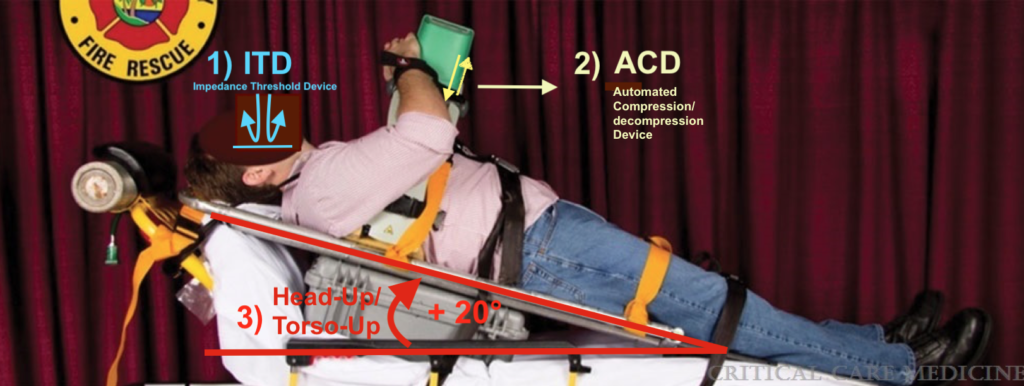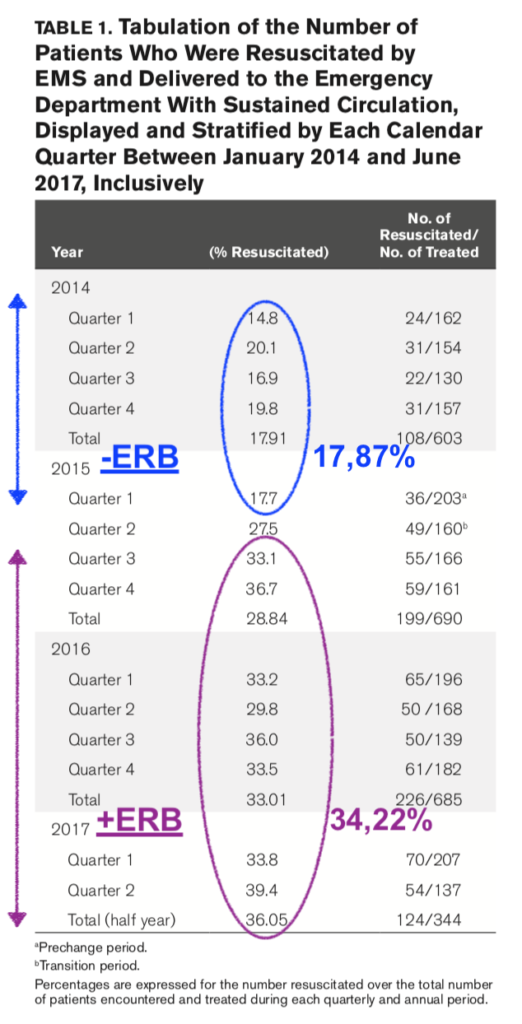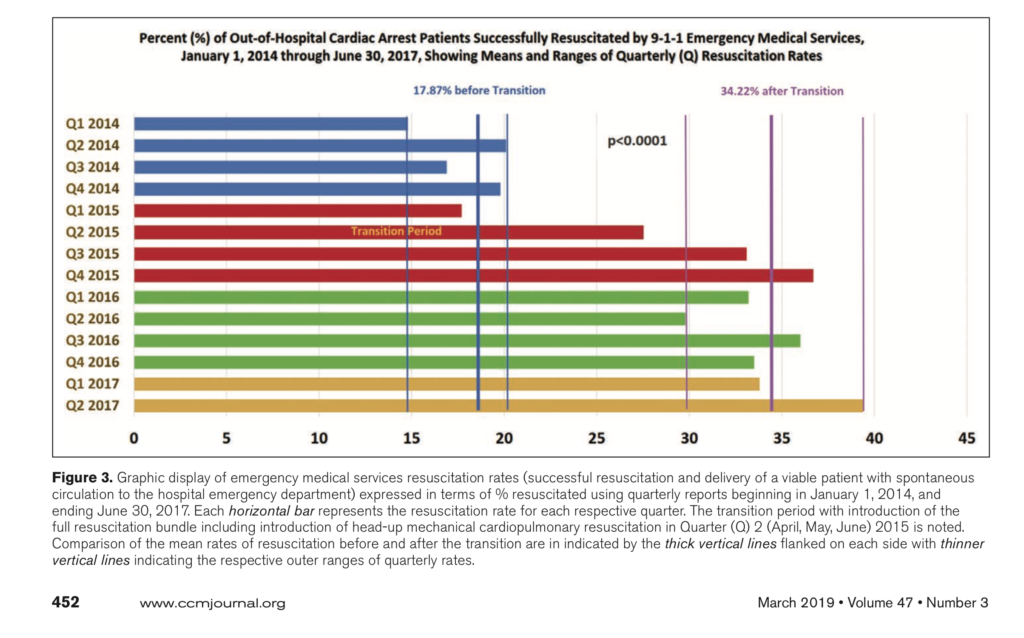Confirming the Clinical Safety and Feasibility of a Bundled Methodology to Improve Cardiopulmonary Resuscitation Involving a Head-Up/Torso-Up Chest Compression Technique PDF EPUB
Pepe, Paul E. et al., Crit Care Med 2019; 47:449–455
EMS Resuscitation Bundle (ERB): high-quality CPR plus
1°) Impedance Threshold Device (ITD) ➜
2°) Automated Compression/decompression Device (ACD) asap ➜
3°) 20° Head-Up/Torso-Up 5-7 min after initiation of CPR.


Sustained ROSC:
before ERB 17,87%;
after ERB 34,22%.
During the before and after evaluation periods, other key system factors typically related to better outcomes remained constant, such as average EMS crew response intervals (6:35 min/s in 2014, 6:33 [2015], 6:32 [2016] and 6:34 [2017] or the relative frequency of ECG presentations [VF/VT, asystole, pulseless electrical activity; p = 0.423]), gender (p = 0.685), arrest after EMS arrival (p = 0.386), and frequency of cases witnessed by bystanders (p = 0.362).

Good neurological outcome rates in patients successfully resuscitated at hospital arrival remains constant: 35-40%.
“The head-up/torso-up cardiopulmonary resuscitation bundle was feasible and associated with an immediate, steady rise in resuscitation rates during implementation followed by a sustained doubling of the number of out-of-hospital cardiac arrest patients being resuscitated. These findings make a compelling case that this bundled technique will improve out-of-hospital cardiac arrest outcomes significantly in other clinical evaluations. (Crit Care Med 2019; 47:449–455)”